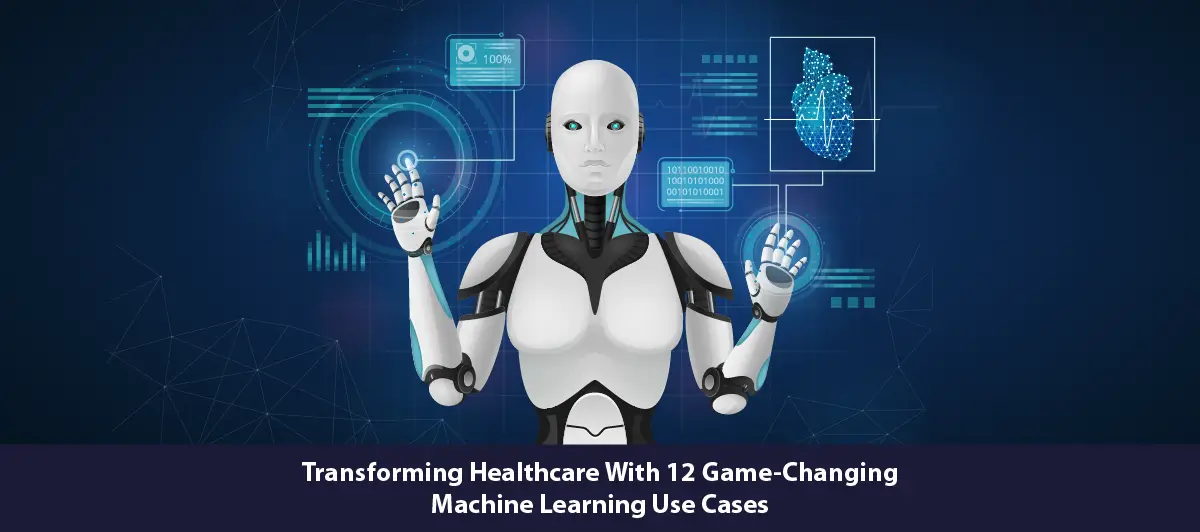12 Real-World Use Cases of Machine Learning in Healthcare
Quick Summary: Explore the profound impact and potential benefits of machine learning in healthcare through our insightful blog. Discover real-world examples of its application, gaining valuable knowledge about how this revolutionary technology is transforming healthcare.
Introduction
Due to the ever-increasing population in the world, it is becoming increasingly difficult for the healthcare sector to provide quality care and services.
Today, more than ever, people demand smart healthcare services, apps, and wearable devices that will help them live longer and healthier lives.
A CAGR of 50.2% is projected to increase Artificial Intelligence’s market share in the healthcare sector from $2.1 billion (as of December 2018) to $36.1 billion by 2025.
Technology has long been a priority in the healthcare industry. In today’s world, machines and artificial intelligence play a crucial role in many health innovations including developing new medical procedures, handling patient records, and treating chronic diseases.
Machine learning in healthcare has great potential with the data it generates for each patient. Therefore, it comes as no surprise that machine learning is used in healthcare today in multiple successful applications.
This Guide to Health App Development offers you useful insights and information to help you succeed in the industry. Use this Guide to Healthcare Software development to say on top of the latest trends.
How Is Machine Learning Used in Healthcare?
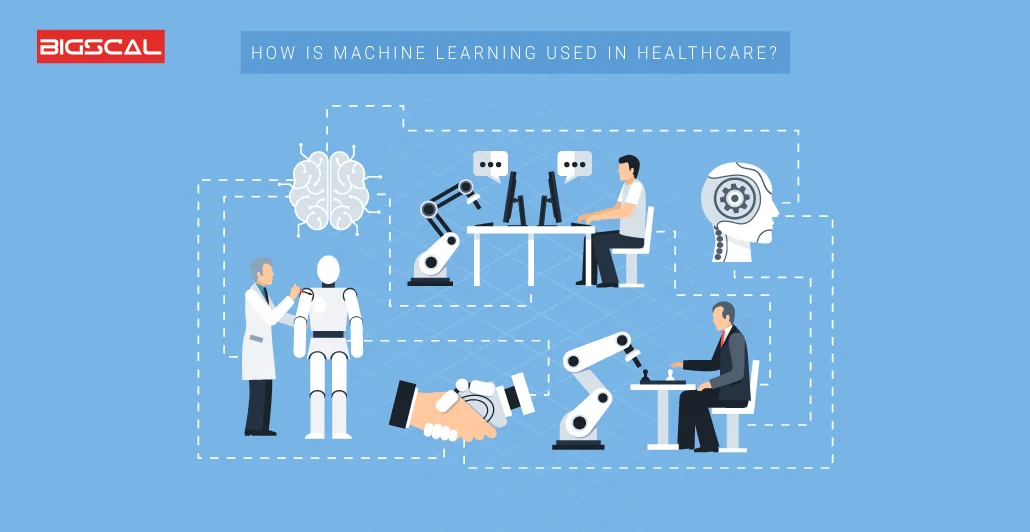
Machine learning is helpful in various use cases of healthcare and has a vast ability to handle complex data. It includes:
- Providing medical imaging and diagnostics
- Predicting and treating disease
- Discovering and making new drugs
- Organizing medical records
In the healthcare industry, more extensive data sets are assembled, often in unstructured form, in electronic health records (EHRs). Furthermore, Machine learning employs natural language processing to organize data into a more structured format to help healthcare experts to glean valuable insights.
Machine learning and AI in healthcare significantly impact drug discovery and development for pharmaceutical companies.
Drugmakers hope that machine learning will be able to predict the way patients will respond to various drugs and identify which patients may gain the most from them.
Additionally, ML technology has already supported central nervous system clinical trials, and it is anticipated that it will offer insight into how patients will respond to medications.
Also, telemedicine has benefited from developments in machine learning in healthcare. Some machine learning companies are looking at ways to streamline workflows by organizing and delivering patient information during telemedicine sessions.
Benefits of Machine Learning in Healthcare
Machine learning provides immense benefits to the healthcare industry. Below we highlighted a few benefits of machine learning in healthcare:
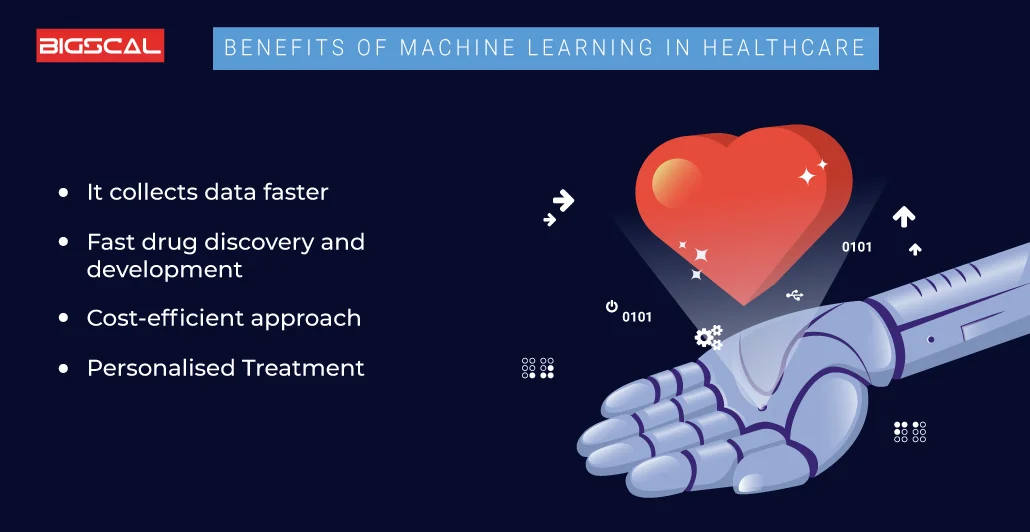
1. It collects data faster
Wearable devices help healthcare experts to collect real-time data by using machine learning algorithms to understand the data patterns. Furthermore, the U.S. Food and Drug Administration has been working to combine artificial intelligence and machine learning algorithms into medical equipment.
2. Fast drug discovery and development
By combining machine learning and deep learning, researchers develop models to more accurately predict successful drug molecules to streamline the drug discovery process.
3. Cost-efficient approach
Using machine learning algorithms help healthcare professionals quickly scan EHRs for a specific patient record, fix appointments with patients and automate day-to-day tasks.
Additionally, it helps doctors or healthcare experts to focus on more urgent matters.
4. Personalized Treatment
Digital transformation in healthcare helps experts create personalized medical solutions tailored to individual needs.
Furthermore, machine learning analyzes information and generates personalized treatments for each person. Thus, making it more precise to their needs.
As a result of machine learning models, healthcare workers can also predict how certain drugs will react with patients, enabling them to address their needs proactively.
Top 12 real-world Applications of Machine Learning in Healthcare
Below we have emphasized a few examples of applications.
1. Clinical Decision Support Systems
Firstly, clinical decision support tools help healthcare professionals analyze large amounts of data to diagnose a disease, determine the next treatment phase, check potential health issues, and enhance patient care.
Secondly, the CDSS tool helps doctors to diagnose the disease effectively and quickly.
Thirdly, it minimizes the possibility of wrong diagnosis and treatment.
2. Smart Recordkeeping
Firstly, machine learning in healthcare updates patient records and eases day-to-day tasks.
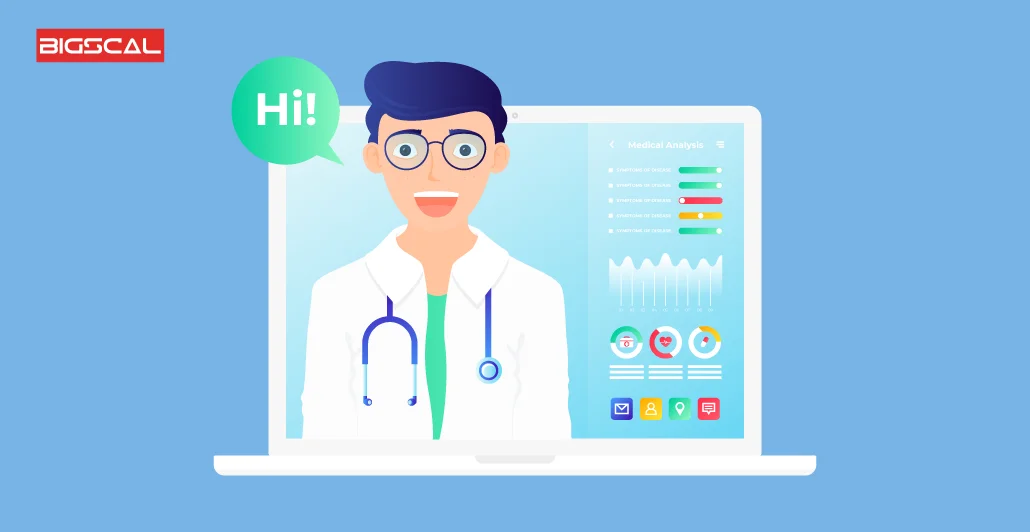
Secondly, it helps to make effective decisions and provide excellent patient care.
Thirdly, it leverages optical character recognition (OCR) technology to convert image to text, specifically focusing on deciphering physicians’ handwriting, thereby streamlining the data entry process.
Additionally, this data can be further diagnosed by other machine-learning tools that help to improve the decision and patient healthcare treatments.
3. Medical Imaging
Medical images were analogue long ago. It has limited the use of technology to identify anomalies, group cases, and study diseases.
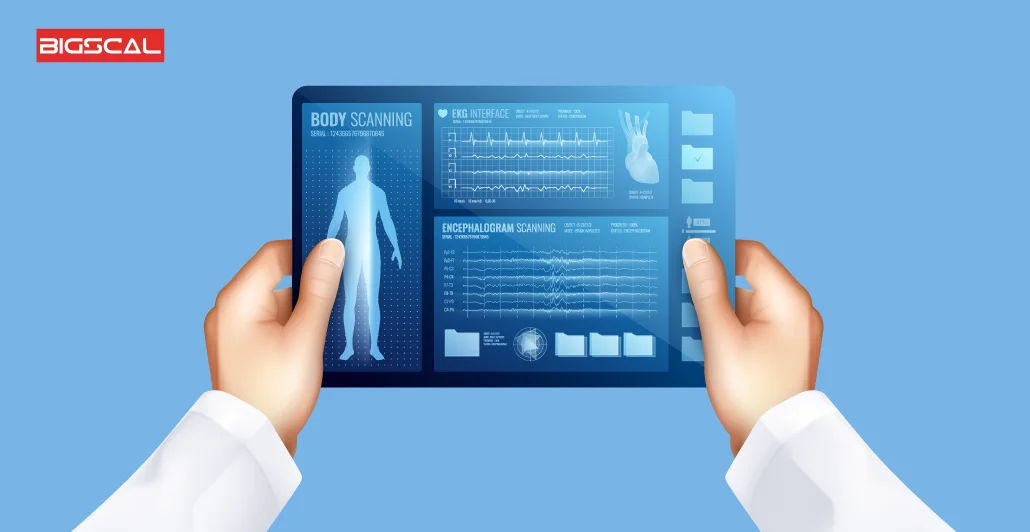
Furthermore, with the advent of digitalisation, machine learning has become more feasible for these types of data analysis.
An analysis of machine learning algorithms found that they are just as sensitive and specific (and sometimes even better than human specialists) as deep learning algorithms, which scored 87.0%, and 92.5%. In comparison, human physicians scored 86.4% and 90.5%.
Microsoft’s Inner Eye project is one of the well-known examples of machine learning in healthcare. A neural network was initially built to differentiate healthy cells from tumors in 3D radiological images.
4. Personalized Medicine
Firstly, machine learning in healthcare analyzes large amounts of data about people’s health and helps doctors to create customized treatments Custom Healthcare Software.
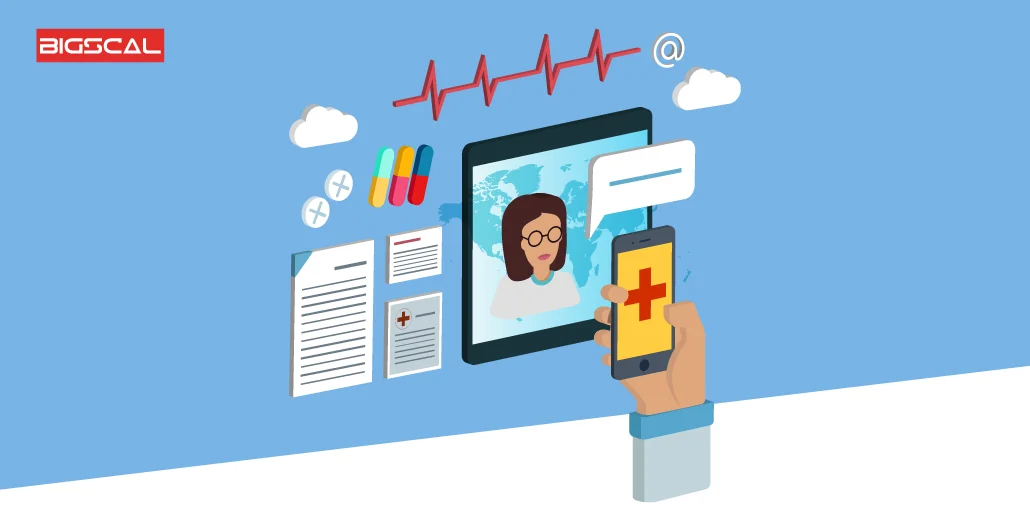
Secondly, machine learning algorithms help doctors to examine data like genetics, medical history and lifestyle choice to predict how patients will react to different treatments.
Thirdly, it helps doctors to choose the best medicine and dosage for each individual, increases the chances of successful treatment and minimizes side effects.
Additionally, ML helps experts to make smarter decisions to keep people healthy. A prime example of personalized treatment is IBM Watson Oncology, which provides cancer patients with treatment based on their medical history.
5. Accuracy Of Treatment Protocols
Firstly, Treatment protocols help experts diagnose the diseases’ seriousness and the urgency of treatment.
Secondly, doctors can suggest alternative treatments to cure the disease and predict the responses of these alternative treatments.
In addition, these are the primary responsibilities of clinicians and surgeons. If these tasks could be automated for accuracy, doctors would be able to shift focus to improving healthcare and making it easily accessible rather than creating slots for service provision.
6. Dermatology Assessments
Firstly, Medical imaging is a well-known application of machine learning in healthcare.
Secondly, ML algorithms analyze big biometric datasets containing pictures of faces and electronic health records to find patterns and gain insights that can be understood by everyone.
Additionally, by feeding more datasets into systems, bots can distinguish certain facial conditions, identify symptoms and rank their seriousness, and often recommend medications to help the situation.
7. Effective Therapeutics
Firstly, machine learning and neural networks are extremely helpful in healthcare because they can handle the immense amount of data processing and analysis needed to provide personalized care to patients.
Secondly, these technologies speed up and improve therapeutic outcomes by finding patterns and accurate predictions based on data.
Additionally, with AI mega-networks, a startup named ReviveMed analyzes data about major metabolites in the body to combat diseases like fatty liver.
Currently, they are providing liver metabolite strings to mega-networks, but they plan to develop effective therapeutics for other rare diseases.
8. Behavior Adjustments
First of all, having a healthy lifestyle and breaking bad behavioral traits belong to the primary elements of preventive medicine.
Secondly, machine learning in healthcare also finds unknown behaviors and routines of day to day performances of the patients.
Finally, monitoring behavior will bring into attention characteristics of individuals that they would not notice.
Also, the patient can use this opportunity to ditch bad habits and to develop positive things that will help in achieving their psychological health.
9. Predictive Approach to Treatment
Secondly, the preventive approach is essential as it serves by identifying the disease in the initial stages and increases the prospect of successful treatment as well as patient recovery.
Moreover, it correctly predicts the diseases that are most susceptible to patients with high risk, which is what the ML in healthcare is most used for.
Furthermore, this technique discovers anything that shows evidence of diabetes, the liver, the kidneys and cancer through the Naive Bayes algorithm.
10. Robotic Surgery
Firstly, the surgical procedure needs carefulness, flexibility in response to changes and a calm and patient approach for a long time.
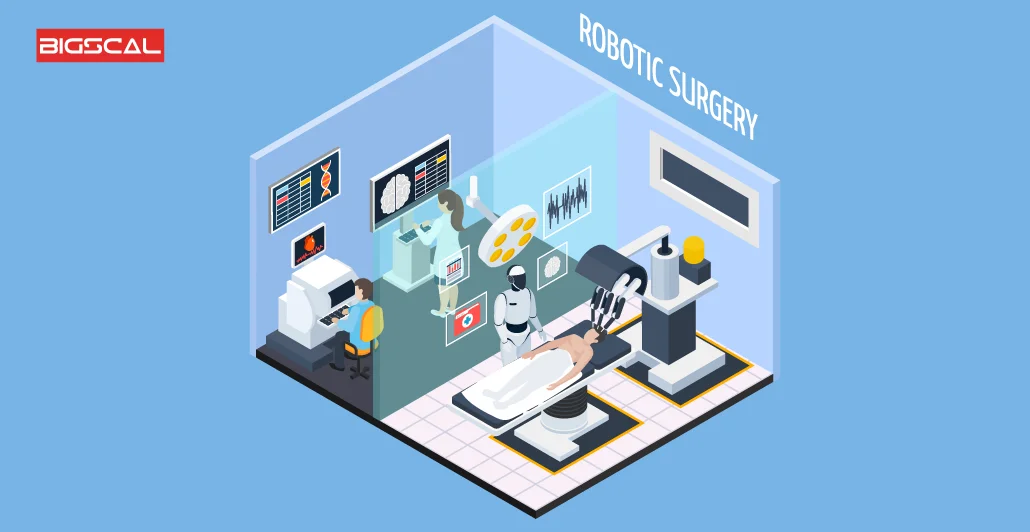
Secondly, robots equipped with machine learning in healthcare have the potential to perform surgical tasks by possessing the necessary qualities of precision, adaptability and steady execution just like trained surgeons.
Thirdly, using machine learning, you can improve surgical planning and modeling, evaluate a surgeon’s skills, and simplify suturing procedures.
Overall, robotic surgery helps human surgeons effectively.
11. Drug Discovery and Production
Firstly, machine learning algorithms examine the active components in drugs and their impact on the organism with the help of previous data.
Secondly, ML algorithms build an active component that works on similar diseases.
Thirdly, this approach creates custom medicine for patients who have specific illnesses and needs.
Additionally, this machine learning tool combines with nanotechnology to give the best results.
12. Infectious disease outbreak prediction
The covid-19 pandemic revealed our lack of readiness for a large-scale infectious outbreak.
Experts had been cautioning the government about this possibility for years. Now, we have developed machine learning tools that can assist in identifying early signs of an epidemic.
These tools analyze satellite data, news reports, social media posts and even videos to predict if a disease is spreading uncontrollably.
This helps the government to take action immediately.
Challenges of Machine Learning in the Healthcare Industry
Let’s discover the challenges of machine learning in healthcare:
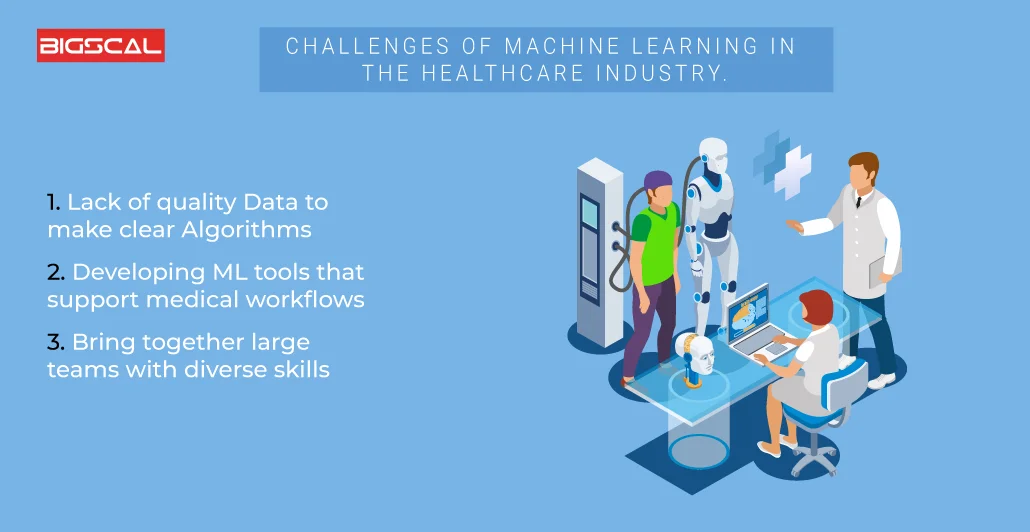
1. Lack of quality Data to make clear Algorithms
The outcomes of machine learning algorithms depend on the data quality it renders.
A lack of precision and standardization is often a problem when it comes to medical data. Furthermore, there is inconsistency in records, profiles etc.
In general, electronic health records were not built to provide data for algorithms. So, it is crucial to gather, clean, validate, and organize the data before applying machine learning tools.
2. Developing ML tools that support medical workflows
Several highly specific machine learning applications help professionals with patient diagnosis and therapy.
Furthermore, it does not necessarily mean that ML tools will be adopted by physicians just because they work well on paper.
Thus, machine learning tools should be intuitive and easy to use in everyday medical workflows. The tool won’t be as effective without feedback from those who will use it, and the professionals won’t trust it.
3. Bring together large teams with diverse skills
An effective machine learning development team should include healthcare specialists as well as:
- Data Architect
- Business analyst
- Data Engineer
- Machine learning expert.
- Data scientist
Additionally, the team must work effectively so that value can be delivered and the product’s viability can be demonstrated as soon as possible.
Final Thoughts
Despite the 12 applications of machine learning in healthcare outlined in this article, there are still countless possibilities in this field. As a result, it helps professionals to automate complicated surgeries, support research, and significantly reduce prescription-recommendation times.
If you are looking to harness Machine learning for your healthcare organization, partner with Bigscal.
Bigscal is a reputable healthcare software development company that enables healthcare organizations to leverage machine learning technology. Our expertise and industry knowledge help you to build tailored ML-based solutions that align with our healthcare objectives.
Together we can turn our vision into reality through a comprehensive development process!!!!!!!!!!!!!! Contact Bigscal.
FAQ
What is machine learning in healthcare?
Machine learning in healthcare refers to applying artificial intelligence algorithms and models to analyze medical data, identify patterns and make predictions, assisting in diagnosis, treatment planning and overall healthcare management for improved patient outcomes.
What are the various applications of machine learning?
Nowadays, Machine Learning has grown rapidly and is reducing humans’ efforts in trial-and-error and improving the accuracy of results. Various industries use machine learning, including transportation, manufacturing, banking, automobiles, and e-commerce.
How predictive analytics is used in healthcare?
Predictive Analytics in healthcare involves analyzing historical and real-time data to identify patterns, trends, and risk factors, enabling healthcare professionals to make predictions about patient outcomes, disease progression and treatment effectiveness, ultimately aiding in decision-making and improving healthcare.
How to use NLP in healthcare?
NLP (Natural language processing), searches and pulls out the desired information in medical records, clinical notes, etc. Moreover, it facilitates the tasks such as Medical coding, information retrieval, clinical decision support and sentimental analysis to improvise the healthcare levels and patient care.
How machine learning is used in the discovery of drugs?
The machine learning technology is being used for drug discovery in order to filter and screen large amounts of biochemical data. Further on, it aids to determine patterns, predict the drug-target interactions, screening of compounds in virtual space, improving the molecular structure and hasten the processes of a drug development.
